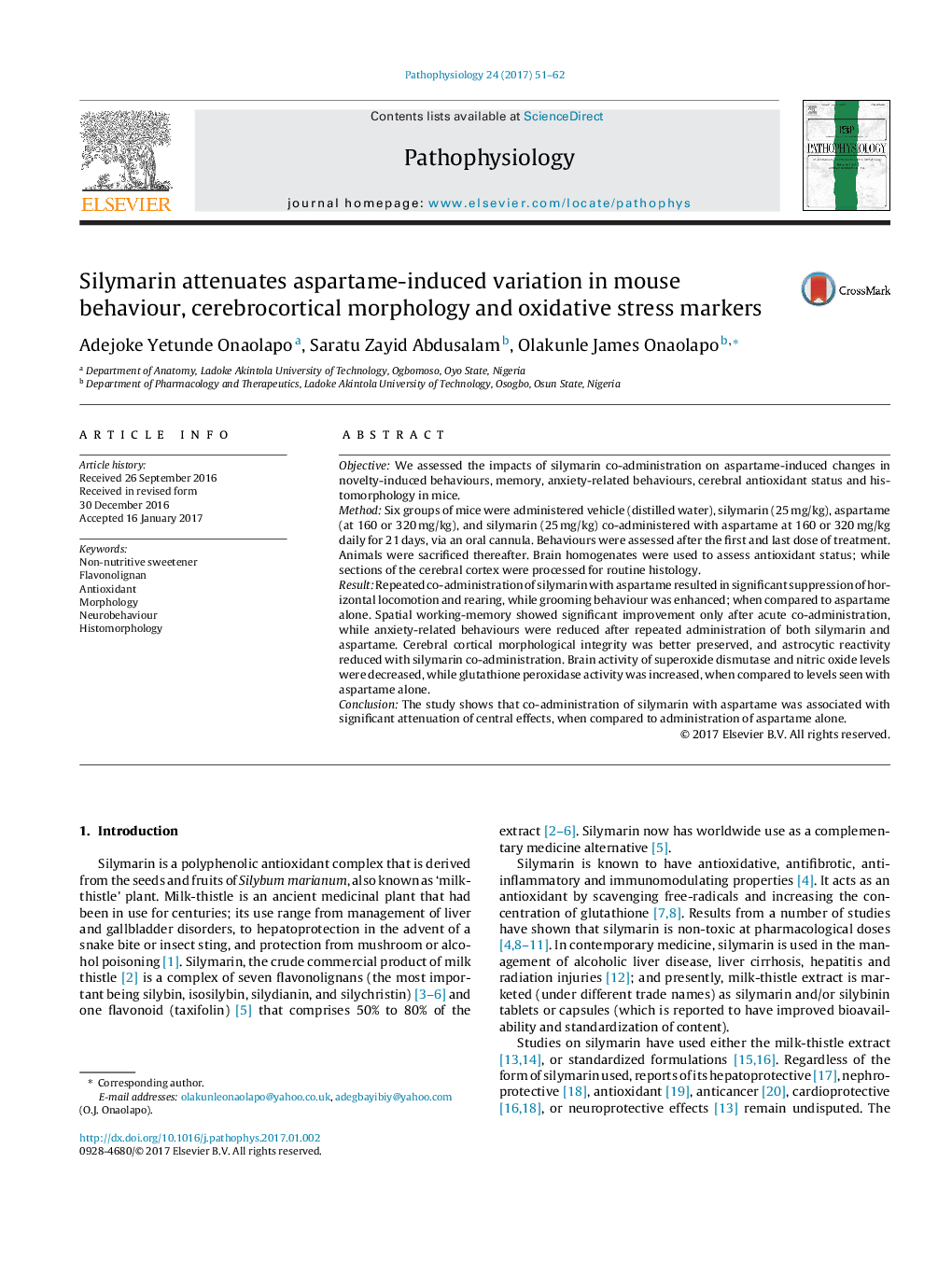| Article ID | Journal | Published Year | Pages | File Type |
|---|---|---|---|---|
| 5716576 | Pathophysiology | 2017 | 12 Pages |
ObjectiveWe assessed the impacts of silymarin co-administration on aspartame-induced changes in novelty-induced behaviours, memory, anxiety-related behaviours, cerebral antioxidant status and histomorphology in mice.MethodSix groups of mice were administered vehicle (distilled water), silymarin (25Â mg/kg), aspartame (at 160 or 320Â mg/kg), and silymarin (25Â mg/kg) co-administered with aspartame at 160 or 320Â mg/kg daily for 21Â days, via an oral cannula. Behaviours were assessed after the first and last dose of treatment. Animals were sacrificed thereafter. Brain homogenates were used to assess antioxidant status; while sections of the cerebral cortex were processed for routine histology.ResultRepeated co-administration of silymarin with aspartame resulted in significant suppression of horizontal locomotion and rearing, while grooming behaviour was enhanced; when compared to aspartame alone. Spatial working-memory showed significant improvement only after acute co-administration, while anxiety-related behaviours were reduced after repeated administration of both silymarin and aspartame. Cerebral cortical morphological integrity was better preserved, and astrocytic reactivity reduced with silymarin co-administration. Brain activity of superoxide dismutase and nitric oxide levels were decreased, while glutathione peroxidase activity was increased, when compared to levels seen with aspartame alone.ConclusionThe study shows that co-administration of silymarin with aspartame was associated with significant attenuation of central effects, when compared to administration of aspartame alone.
